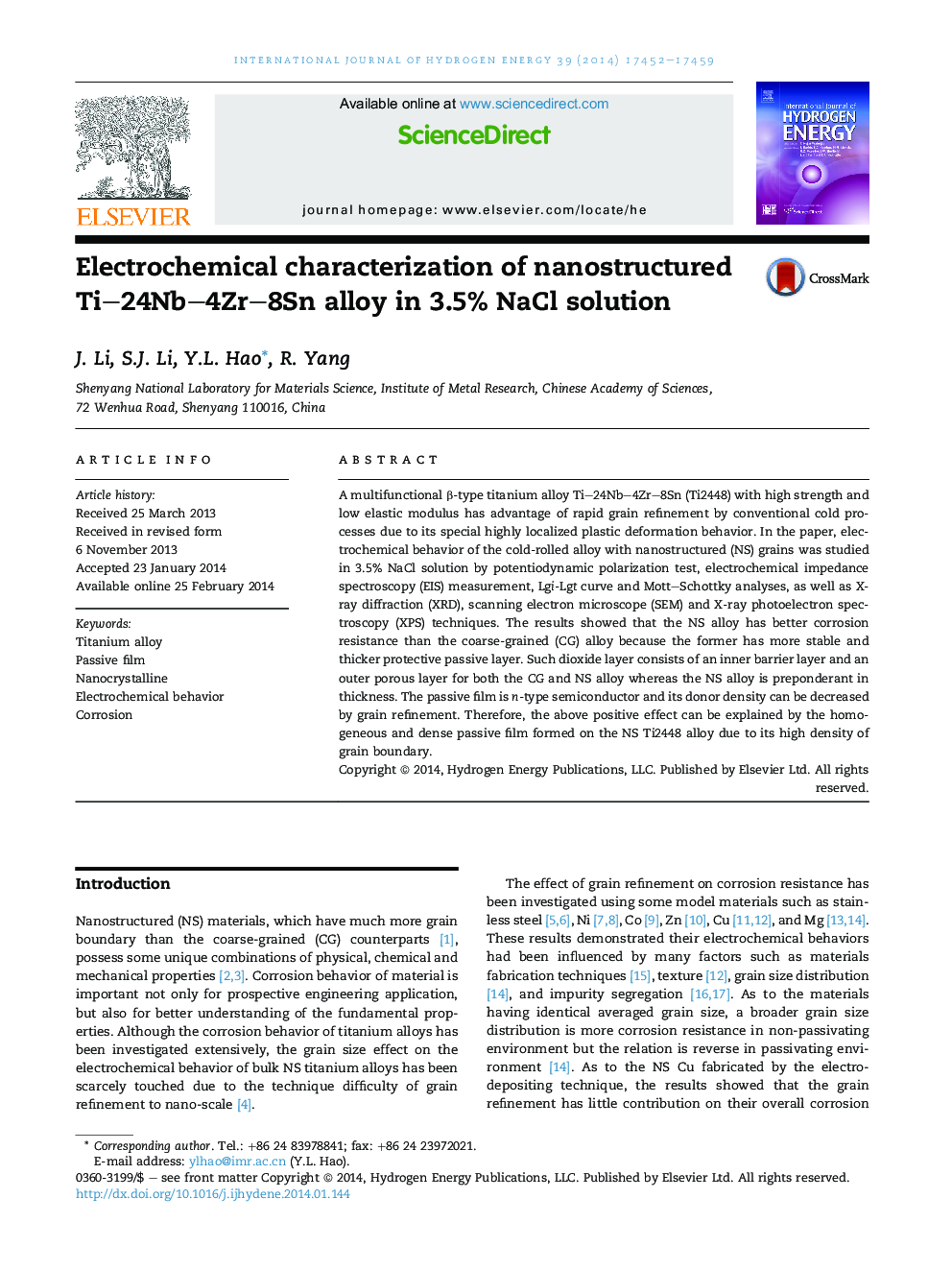| Article ID | Journal | Published Year | Pages | File Type |
|---|---|---|---|---|
| 1272205 | International Journal of Hydrogen Energy | 2014 | 8 Pages |
•NS Ti2448 alloy has better corrosion resistance than the CG alloy.•Grain refinement decreases donor density and increases film thickness.•More grain boundary favors to better protective film.
A multifunctional β-type titanium alloy Ti–24Nb–4Zr–8Sn (Ti2448) with high strength and low elastic modulus has advantage of rapid grain refinement by conventional cold processes due to its special highly localized plastic deformation behavior. In the paper, electrochemical behavior of the cold-rolled alloy with nanostructured (NS) grains was studied in 3.5% NaCl solution by potentiodynamic polarization test, electrochemical impedance spectroscopy (EIS) measurement, Lgi-Lgt curve and Mott–Schottky analyses, as well as X-ray diffraction (XRD), scanning electron microscope (SEM) and X-ray photoelectron spectroscopy (XPS) techniques. The results showed that the NS alloy has better corrosion resistance than the coarse-grained (CG) alloy because the former has more stable and thicker protective passive layer. Such dioxide layer consists of an inner barrier layer and an outer porous layer for both the CG and NS alloy whereas the NS alloy is preponderant in thickness. The passive film is n-type semiconductor and its donor density can be decreased by grain refinement. Therefore, the above positive effect can be explained by the homogeneous and dense passive film formed on the NS Ti2448 alloy due to its high density of grain boundary.
